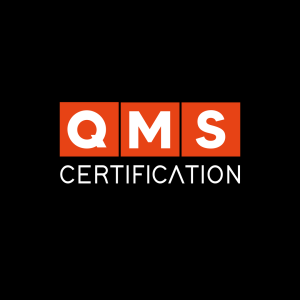If you’ve gone to the effort to implement ISO-certified quality control system, we know that your business is well prepared to deliver consistently high-quality products or services based on tried and tested systems. This effort deserves recognition. Having an ISO-certified system will give you competitive advantage, and knowing how to market it right it’s so important.
We also know that an ISO certification validates your commitment to operating as an international-standard, best-practice business; but do your customers know that? ISO-certified quality system should give you a strong competitive advantage, but in many cases, you’ll need to educate your market to ensure your business is taking full advantage of your valuable ISO certification.
Here are 5 ways to market your ISO-certified system and gain competitive advantage:
1. Display your certification
When you achieve an ISO certification, you’ll be given a hard-copy certificate. Frame and display your certificate where customers will see it. Also, mention your ISO certification prominently on your website, and include mentions in the email signatures of all your staff, on printed business cards, letterheads and any other custom stationery you use. Include mentions on any promotional material such as banners or signs that you may use if you attend trade fairs or other industry events.
 2. Provide some context
2. Provide some context
Another thing you can do to gain competitive advantage is to dedicate a page of your website to explaining exactly what your ISO certification means, what you did to earn it, and the value this provides to your customers. Then link to this page every time you mention your ISO-certification online. Also include an explanation paragraph on all your printed materials such as brochures, catalogues, quotes, price lists and annual reports.
3. Educate your staff
Ensure all your staff know that you have an ISO certification, what it means and how to explain it to your customers. And that doesn’t mean just your sales staff. Everyone who has potential contact with your customers — from senior managers to reception staff — should be able to deliver a short ‘elevator pitch’ that explains the value of your ISO certification.
4. Tell the media
Another way to market your ISO-certified system is to share it with the media. Journalists are often on the lookout for trusted spokespeople they can call on for expert comment. Send out a media release to relevant trade publications and blogs to announce your ISO certification and why this makes you a best-practice operator in your industry sector. Also include the topics you can provide expert commentary on, and invite journalists to get in touch whenever they need a relevant quote for their articles.
5. Respect the rules
There are some rules around how you can promote your ISO certification, and violating these can land you in hot water with the official body. It’s important to remember that you can’t claim a specific product is ISO certified, as ISO certification pertains to processes, not products. You also can’t use the ISO logo on any of your marketing materials without permission; refrain from using the term ‘ISO accredited’ as it’s a certification, not an accreditation; and you may not print any implied ISO endorsement on any product or product packaging. But, if you play within the rules, an ISO certification can be a valuable addition to your marketing message that underlines your capability to consistently provide superior quality products or services, giving you competitive advantage over your competitors.
Want to learn more about how ISO certification can benefit your business? Get in touch with the ISO experts at QMS Certification Services for a friendly chat.











